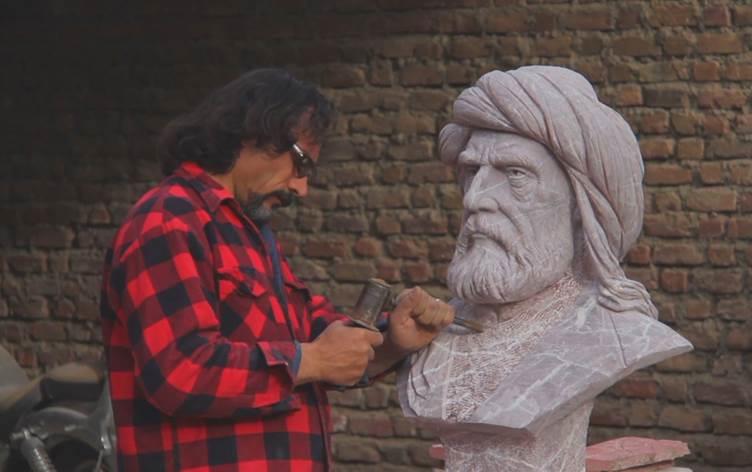In modern times, Kurds have been sabotaged by the occupiers throughout their political and cultural life and have been under pressure in cultural, political, and geographical aspects. In the cultural field, the establishment of Persian, Arab, and Turkish nationalist states ended up forcing pressure on that different culture known as Kurdish culture. Development of Kurdish national symbols was prevented and also via changing the source of Kurdish symbols and making up a false history, they attempted to simply steal those parts of Kurdish culture which they could introduce as their own.
In the political field, except for one case, none of the other parts of Kurdistan have had the opportunity to become an entity that can make their own political decisions and possess self-determination. Yet, the activists have faced opposition and threatening problems.
Geographically, the countries that dominate Kurdistan have tried to separate any region of Kurdistan that could be separated from other parts, and they have injured the geography of Kurdistan by changing the demographics of the Kurdish regions.
Since the early 19th century, Kurdish writers and intellectuals have raised their brave voices against these attempts. One of these figures and voices was the Kurdish patriotic poet Haji Qader Koyi.
Haji Qader confronted, of course consciously, all three plans against Kurdistan in his writing.
In this regard, Haji Qader had carefully written several poems, none of which were poetic in the subject matter. The poems were nevertheless significant as a basis for the construction of geographical, cultural, linguistic, and political identity.
He started with "Mustafa Begi Kurdi". Every person that he mentioned had put a new block on the structure of the Kurdish language and cultural identity.
The knight of the rhetoric of the Kurds
The eloquent pioneer of Baban
Is Mustafa Known as Kurdi
Covered the Kurdish idol with Ghazal
The title of a king is special for him
Because his horse is the nicest in this field
The form of poetry that other nations of the region had at that time was "Ghazal" and Haji considered Kurdi as knights in this field.
In the field of meaning, again he referred to a name that had given eternal life, and new and beautiful meaning to poetry.
Nali was a very great teacher
He was like Khedr (the man who drank life elixir) toward meaning
After that, Haji Qader began to write an analytical history of Kurdish writing. He mentioned the poets who have written in Kurdish in different fields. He even said the names of several poets who were notorious, although he did not mention the reasons for the notoriety, he still considered them important because they wrote in Kurdish. In other words, Haji did not consider anything but the enemy as an obstacle to building and enriching his national identity and language.
Like ugly deformed animals
Talk about their names only and don’t ask
Their poems are nice, at least they are Kurdish
Although they are notorious and little!
I sacrifice a hundred Ibn Yamin to them
Because they are under the Kurdish impression by all means
In this regard, Haji Qader's thoughts and measures were not limited to any region or part of Kurdistan. He sought a common identity more than today's writers and intellectuals. He talked about poets from all areas and parts of Kurdistan and did not forget any of them. If he first talked about Kurds and Nali from Sulaymani, then he talked about Sheikh Reza Kerkuki and then referred to Khani and Faqe Teyran in another part of Kurdistan.
Sheykh Ahmad is the unique man in Jazira
He is prominent and the greatest
Every word Jami said is this
By all those nice words he means this
“I have seen an old man in Jazira
I have seen a nice man like Harir (Harir is a nice and beautiful fabric)”
Ahmad Khani owns Mam and Zin
He is the king of the Heavens
His follower is in Godingan
In Jazira they call him Faqe Teyran
In addition, he mentioned Wafaie from Mahabad, Ahmad Kori from Shno, Ahmadbag Komasi from south Kurdistan, and others.
On the other hand, he considered oral literature important and defined it as a forum for preserving the Kurdish identity. He also mentioned the verses of Damdam, Hatam, Abdurrahman, etc. He even believed that they were very important and they could not be written by a poet like Ferdowsi.
Haji Qader deliberately mentioned Ferdowsi because other Kurds consider him the pinnacle of their language. Even Ferdowsi himself believed that he had built a palace with his poems that would not collapse.
I built a high palace from Nazm (Poetry)
That wind and rain could not damage it
In response to the cultural and linguistic prideful, Haji Qader says:
The Damdam poem which you do not care for
Are totally Kurdish magical words
If it was written like Shahnameh
You could see how great it was
The black horse of Bayt (a kind of Kurdish poetry) is brilliant
Its rhythm is as nifty as a professional rider
Ajam’s six legs horse of poetry
Is all a big lie in everybody’s opinion
Just because it is in written form people read it
They all neglect our Bayt
Like Hatam’s Bayt in meaning
Ferdowsi could not even get close









